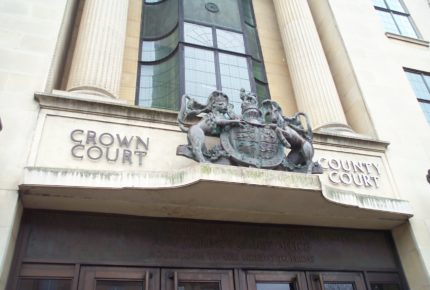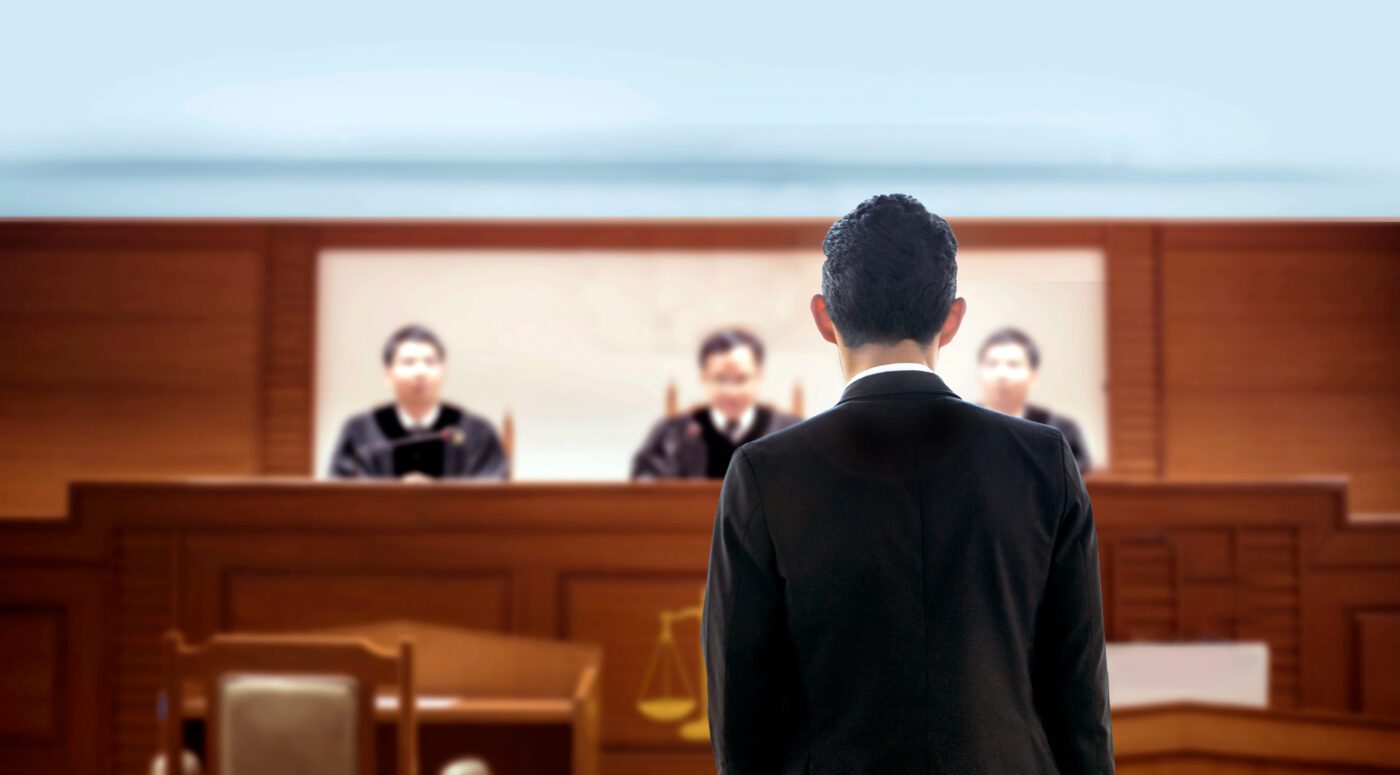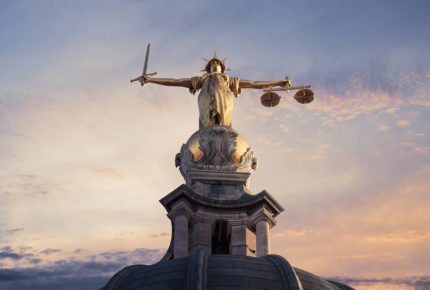

If you are facing charges in the Crown Court, you are probably feeling afraid and anxious, and are wondering about the upcoming stages in the criminal justice process. A plea and trial preparation hearing (PTPH) is the first hearing that takes place after your case is sent to the Crown Court. The purpose of the hearing is to make sure that sufficient information has been provided to the court for a trial to be arranged. At a PTPH, the judge takes on a managerial role, to set out the further steps that are required before trial. This could include further hearings, expert reports, and organising for certain witnesses to be present. The PTPH could also be an occasion where certain charges are withdrawn, and plea bargaining takes place. It is therefore a crucial moment in your case. This article explains what will take place at your PTPH hearing, so that you can prepare for it properly. Read on to understand what will be discussed at a PTPH hearing, and what happens afterwards.
What happens at a plea and trial preparation hearing?
Prior to the PTPH, the prosecution must lodge the list of charges against you with the court – this list is known as the indictment. At the PTPH, the court clerk will read out the list of offences that you have been accused of and ask you to plead ‘guilty’ or ‘not guilty.’ This process is called ‘arraignment.’ This is the moment where you are obliged to tell the court your position in respect of the charges that you are facing.
If you plead guilty, the judge can sentence you there and then. Alternatively, the judge can adjourn your case to gather more information such as a pre-sentence report. A pre-sentence report is a document prepared by the probation service, which provides an independent assessment of the defendant and the risk that they pose to society. If there is a victim personal statement written by the victim in the case, this will also be considered by the court at the sentencing stage. If you are considering pleading guilty, your legal representative can ask the court what the maximum sentence is likely to be with a guilty plea. This is known as a ’Goodyear’ indication. This indication will be calculated with reference to the sentence reduction that you could receive if you plead guilty at that stage in proceedings. If you plead guilty at a later stage, the sentence reduction could be less. Once the indication is given, if you plead guilty at the hearing, the court cannot impose a higher sentence than what the judge has indicated.
If you plead guilty to some of the charges but not others, the prosecutor has to decide whether to continue to prosecute you in respect of the charges for which you have entered a not guilty plea. If the prosecutor does not intend to proceed with the charges for which you have said you are not guilty, they will ‘offer no evidence.’
Alternatively, they could ask the court for permission for the charges to ‘lie on file’, which means that they will not go ahead with them now but that technically they could be proceeded with at a later date, however this is very rare. If the prosecutor intends to proceed to trial in respect of the not guilty charges they will ask for the case to be listed for trial. When making this call, the prosecutor has to consider the Code for Crown Prosecutors and the Attorney General’s Guidance on Accepting Pleas. This guidance explains that the basis of a guilty plea must be factually accurate and take the victim’s perspective into account. If the defendant pleads guilty to a lesser charge, the prosecutor has to consider whether a guilty plea for that charge will enable the court to pass a sentence which reflects the seriousness of the offence.
If there is to be a trial because the prosecution will proceed with the not guilty pleas, the rest of the hearing will concern making a timetable for matters which need to be organised before the trial date. The prosecution and defence will provide a list of witnesses and any other evidence they intend to rely upon. They will also agree on the next steps to be taken in the case. This will include the prosecution sending the defence disclosure material. The estimated length of the trial and the trial date will also be set at the PTPH.
Can a case be dismissed at a plea and trial preparation hearing?
Yes, it is possible for the CPS to discontinue a case at the PTPH. The prosecution can choose to dismiss a case at any time before trial. This could happen where it appears to the prosecutor that there is insufficient evidence to provide a reasonable chance of conviction. It could also happen where a new piece of evidence emerges (such as CCTV footage) that appears to exonerate the defendant. Once the prosecution has put forward its evidence at trial, the prosecutor can only discontinue the case with the consent of the court. The prosecutor can either discontinue the case by withdrawing the charges, or by offering no evidence in respect of them.
Do you get sentenced at a plea and trial preparation hearing?
If you enter a guilty plea, you could be sentenced at the PTPH. If the judge has all the information that they need to calculate your sentence, you will be sentenced straight away at the hearing. The judge will refer to the Sentencing Council’s guidelines, in order to formulate the appropriate sentence in your case. Where you are given a custodial sentence, this could mean that you are remanded in prison directly after the hearing. However, if the judge needs further information, such as a pre-sentence report, or a victim impact statement, they will adjourn the case to a further date until this information has been obtained.
What happens after a plea and trial preparation hearing?
If you enter a not guilty plea, after the PTPH the prosecution and defence will prepare for trial. The prosecution is obliged to send all the relevant disclosure that supports the prosecution’s case, or a possible defence, to the defendant or their legal representatives. Sometimes there will be further hearings after the PTPH, before the trial. These will address issues such as the admissibility of evidence.
On the date of the trial itself, the prosecution will begin by presenting evidence to attempt to demonstrate to the court that you are guilty of the offence. The prosecution will call witnesses and lead their evidence. After each witness has been examined, the defence will have an opportunity to cross-examine them. After this, the defendant will have the opportunity to put forward their case, although they are not obliged to do so. This usually also involves calling witnesses. After the defence representative has had the opportunity to question defence witnesses, the prosecutor will then have the chance to cross-examine them. At the conclusion of the trial, the judge will give the jury directions, and the jury will retire to consider whether to find the defendant guilty or not guilty.
Can you plead guilty and not be convicted in the UK?
If you plead guilty at any stage in criminal proceedings, you will be convicted and receive a criminal sentence. This is the way that the majority of criminal cases are resolved. A conviction will not always be a prison sentence, it could be fine or a community level order. If you plead guilty before trial, you will usually receive a lighter sentence compared to if you wait until trial to give your guilty plea. This even applies to serious offences such as murder. The reason for this is that the courts save a great deal of time and money when a defendant pleads guilty compared to if they plead not guilty and are subsequently found guilty at trial.
If you tell your lawyer that you are guilty of the offence, but intend to plead not guilty, your lawyer will advise you to change your plea to guilty. Your lawyer will not break your confidentiality by telling the court that you have confessed to the crime. However, because they are under a duty not to mislead the court, they may no longer be able to represent you if you insist upon maintaining a not guilty plea. In these circumstances, your lawyer will withdraw from your case ‘for professional reasons’ and you will need to instruct new legal representation.
Where to get further help?
If you are facing a plea and trial preparation hearing, make sure that you have a criminal defence solicitor that you can count upon. Whilst this hearing may not seem as significant as trial, key decisions will be made that could affect the outcome of your case. At Stuart Miller Solicitors, we know the importance of ensuring that a defendant receives proactive representation at the PTPH. Contact us for a no obligation consultation today.

